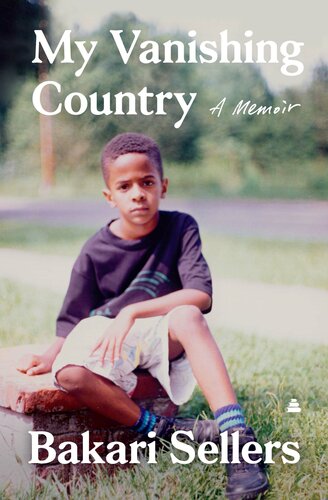
Country
A Novel
کتاب های مرتبط
- اطلاعات
- نقد و بررسی
- دیدگاه کاربران
نقد و بررسی

August 1, 2019
The Iliad in the Irish borderlands during the final months of the Troubles. Northern Ireland, 1996. Despite the cease-fire, Shane Campbell (alias Pig), the Officer Commanding of a Provisional IRA unit, is planning a strike on a nearby British Army garrison. Why? Because Pig's sister-in-law Nellie, the wife of his brother Brian (alias Dog), has tarnished the Campbell name by turning "tout" (Loyalist/British agent) and then running away to England with her handler. Sound familiar? Just you wait. The action opens with a disagreement between Pig and Liam O'Brien (unsubtle alias: Achill). After Pig is forced to return "his girl" to her father, a local Protestant landowner, he decides that he must have Achill's girl as a replacement. Achill--the famed Border Sniper, hugely feared by the IRA's enemies--rebels against Pig's tyranny by putting down his arms, an act which emboldens the British (the best of whom is SAS Capt. Henry Morrow) to set an ambush for Pig's team. The rest is...well...The Iliad. And that's the problem. Writing in a fast-paced Irish lilt, debut bard Hughes is at his best (which, mind you, can be good) when he's least faithful to his Homeric blueprint. His reimagining of Helen (here Nellie) is especially striking, showing how a young woman's search for freedom ends up entangling her (because abortions are illegal) in the very place and conflict from which she seeks escape. But Nellie's section is, alas, an exception. Hughes is faithful to Homer's story at the expense of his own. His characters are not themselves but proxies for the Homeric originals; they don the armor and read the lines but are lacking in on-the-page emotional complexity. Similarly, dozens of scenes are included to simply check off their corresponding plot box in The Iliad--and therefore deliver very little affect of their own. The result? The novel, despite its promising start, quickly devolves into a litany of allusions. Look! The Republican pub is called the Ships! Look! The British fort is called Castle William but some kids monkeyed with the sign and now it reads "Castle Illiam!" Look! Pat (nee Patroclus) is literally wearing Achill's body armor! Look! Achill, the famed long-distance sniper, has literally chased Henry three times around Illiam's walls on foot! A too faithful retelling that, despite some vivid moments, ultimately has little life of its own.
COPYRIGHT(2019) Kirkus Reviews, ALL RIGHTS RESERVED.

August 5, 2019
Hughes’s clever conceit in this dark take on political violence—the Irish author’s American debut—is to transport The Iliad from ancient Troy to Northern Ireland in the mid-’90s, during a cease-fire between the IRA and the British. The year is 1996, and Nellie is married to an IRA soldier while simultaneously being an informer for the British. When she fears exposure, she is spirited out of the country, thus paving the way for an SAS roll-up of her husband’s unit. To combat the SAS, Pig, the local IRA head, calls for the support of Achill, the most feared member of his unit. But Achill has a personal grudge against Pig and turns him down. In his stead, Achill’s friend, Pat, goes one-on-one with an SAS officer, Capt. Henry Morrow, even as the powers that be in London, Belfast, and Dublin use the cease-fire to their own, opposing cynical ends. The tragedy that ensues sheds light on what these past and present conflicts have in common. The original gang from The Iliad is represented—Helen, Agamemnon, Achilles, Patroclus, Menelaus, Hector—and it is the author’s language that keeps the story fresh. There is rough poetry in both the self-serving speechifying of the leaders and the violent threats of the rank-and-file. This is a canny update of one of the world’s oldest stories.

September 1, 2019
Hughes' adaptation of The Iliad, set in 1990s Northern Ireland, gives new context to the fatal forces that drive Homer's epic: loyalty, machismo, and entitlement to women. Achilles here is Achill, the IRA's best sniper, and Paris is Pig, Achill's compatriot, who has taken up with a too-young girl whose father is desperate for her return. At the same time, an IRA wife becomes an informer. A nascent ceasefire ends, reviving the tit-for-tat brutality that characterizes ancient and modern conflicts. Some of the violence here, especially a kneecapping scene and the treatment of a dead British soldier's body, is hard to read; there's also sexual crudeness aplenty. But there's humor too, which, combined with the stellar writing (especially in the use of Northern Irish speech patterns and slang) and the revelation that, where men's territoriality is concerned, nothing has changed since Homer's time, makes this well worth reading. Readers may be inspired to tackle The Iliad after finishing Hughes' work; they should also be guided toward Brian Friel's play Translations, which involves a nonviolent but still fraught confrontation between Irish and English cultures.(Reprinted with permission of Booklist, copyright 2019, American Library Association.)

























دیدگاه کاربران